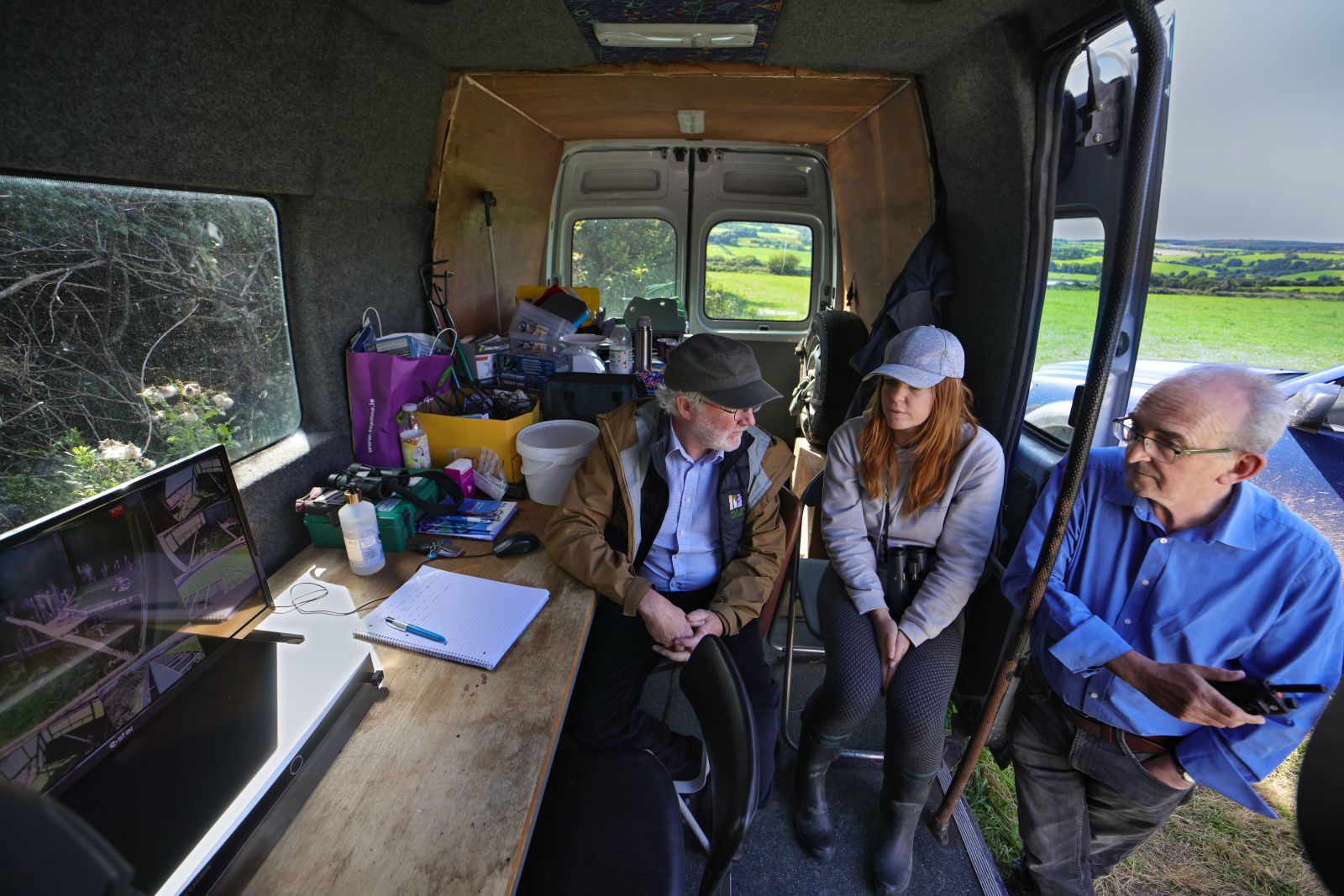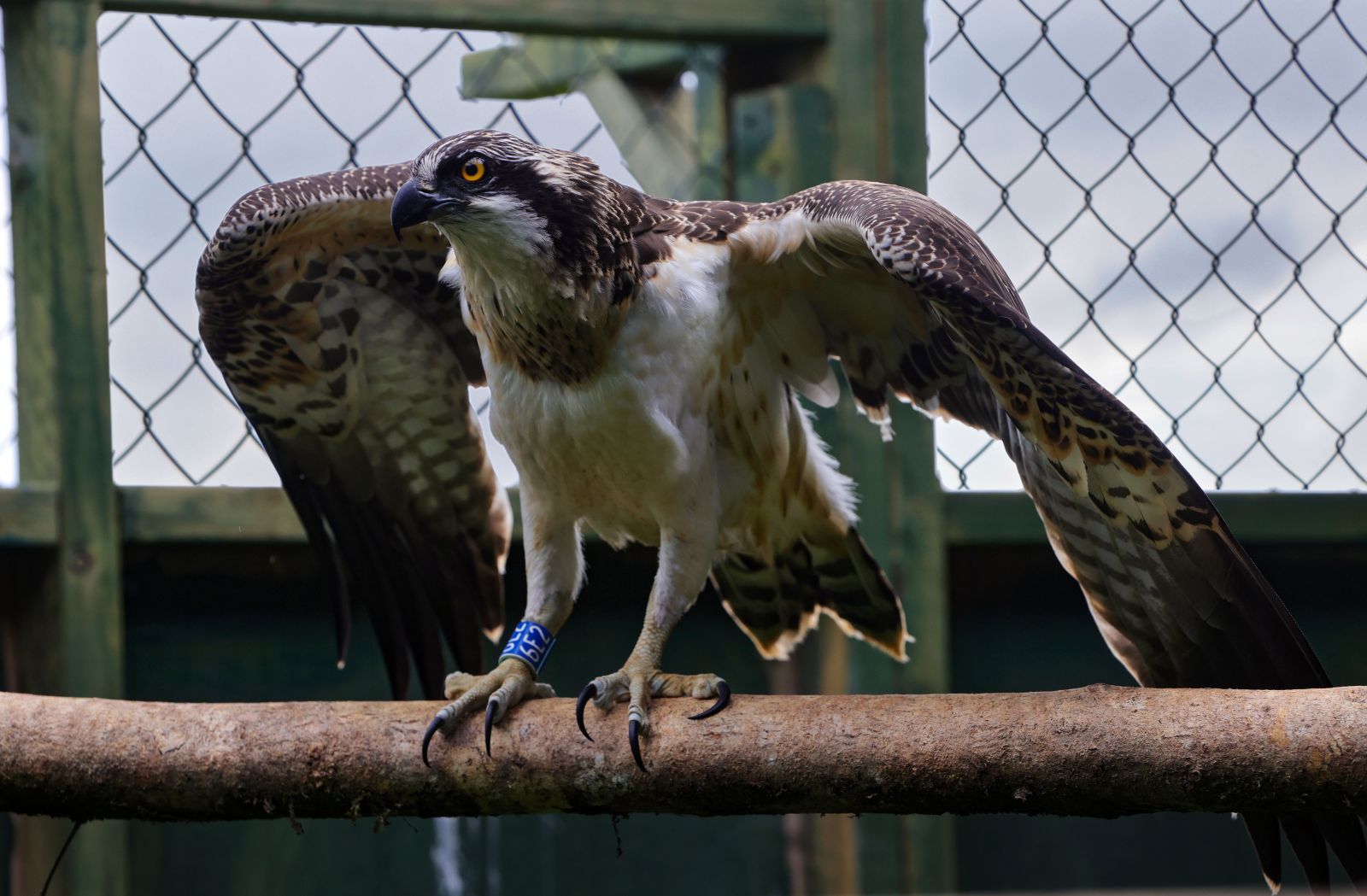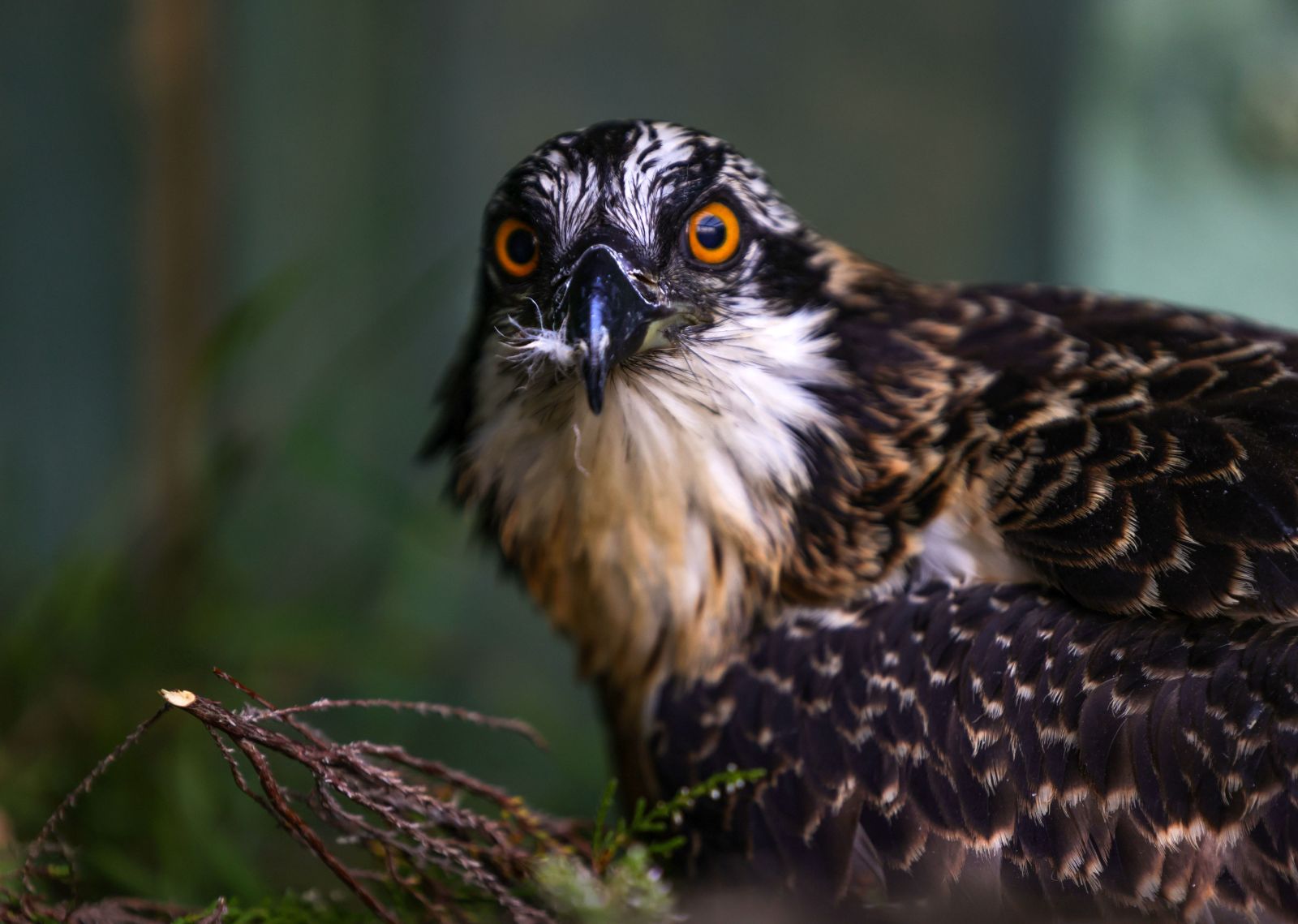News
Minister Noonan welcomes the return of the osprey to Ireland
Date Released: Monday, August 28, 2023
- Osprey chicks released through a new National Parks and Wildlife Service (NPWS) reintroduction programme follow a historic sighting of a breeding pair of ospreys and their chicks in Northern Ireland
- Fifty osprey chicks to be brought in over five years with the aim of establishing a population of ospreys eventually breeding in Ireland
- Programme builds on success through the white-tailed eagle programme and complements nature conservation efforts.
The first osprey chicks from a new NPWS reintroduction programme were released into the wild this weekend. The programme was established to reintroduce this bird of prey to Ireland so that it becomes a viable, free ranging population in the wild. Over the next five years, the NPWS plans to reintroduce fifty osprey chicks as part of the programme.
Ospreys are thought to have become extinct as breeding birds in Ireland over two hundred years ago but have continued to visit the island as part of their migratory pattern. Earlier this week, a breeding pair of ospreys and their chicks was discovered at a nesting site in Northern Ireland – a momentous, first sighting of naturally established, breeding ospreys in over two hundred years.
Minister of State for Heritage and Electoral Reform, Malcolm Noonan T.D., said:
“It was a privilege to release the first osprey chicks under the NPWS reintroduction programme into the wild today. This milestone moment is particularly exciting given the news of a breeding pair in Northern Ireland. It is a positive sign of the quality of the habitats on this island and gives us reason for great hope that these chicks will eventually breed here too and reminds us that biodiversity action can – and does – yield positive returns.
“These incredible birds were once extinct in Ireland and their reintroduction is an important tool in our efforts to conserve and restore nature. We know from our European neighbours and our own first-hand experience that reintroduction programmes can bolster declining populations, gradually increasing them over time, while giving us valuable scientific insights. into managing the return of this vulnerable species to our shores to plunge and dive for fish and eventually breed.
“Similar to the white-tailed eagle programme, the success of this initiative relies on the support of our farmers and landowners, who are working together with an experienced NPWS team, and I’d like to express my sincere gratitude to them for their contribution in bringing this spectacular bird back to our skies.”

Over the past sixteen years the NPWS has developed considerable knowledge and expertise of the reintroduction of extinct species, including its white-tailed eagle programme which has reintroduced one hundred and seventy white-tailed eagles to Ireland, some of which are now fledging chicks. This expertise along with international best practice, an ongoing partnership with Norwegian authorities and significant community support has informed work to reintroduce the osprey.
Ospreys are fish-eating birds of prey which need habitats which are close to rivers, lakes or coastal areas which ensure a sufficient supply of fish. They are known to be monogamous and faithful to both their mate and their nest.
Philip Buckley, Divisional Manager, NPWS South-west who heads up the osprey re-introduction programme said:
“In preparation for this programme, we drew on significant experience of countries around Europe who have reintroduced the osprey resulting in sizeable breeding populations over time. Identifying a suitable habitat which the birds will return to each year is key, and I would like to thank the farming community in the south east for their engagement and co-operation.”
Similar to the white-tailed eagle reintroduction programme, the chicks are brought from Norway, and cared for at a secure location until they are ready to be released.


